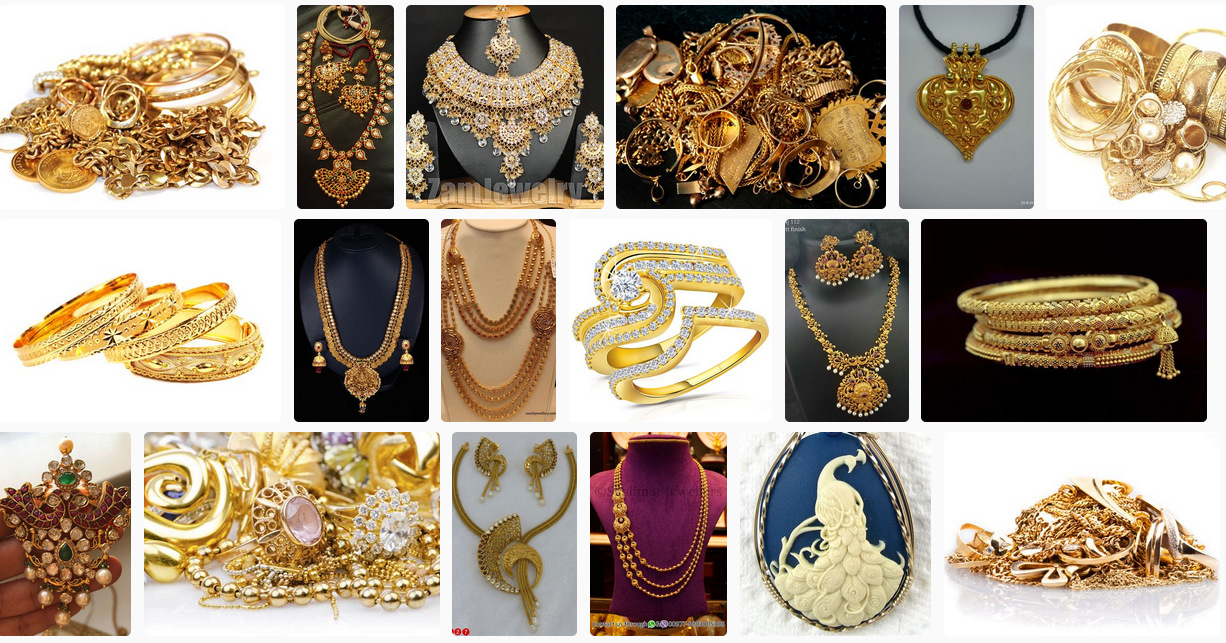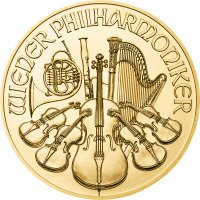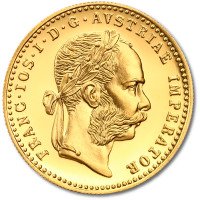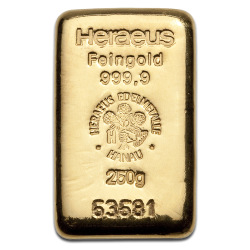Let me clarify a few things about buying gold.
Imagine you have a hybrid car. The car can run either on gasoline or on electricity. It is not a plug-in hybrid that can be charged from the grid, it can only be filled with fuel at the gas station. In that analogy, you are the car, refilling at the gas station is your pay check, the amount of gas in the tank is the amount of money you have, and the LiIon battery is gold.
Gold is something you buy when you want to store the excess money that you have, instead of keeping it in the bank where you would get a negligible interest rate that doesn’t cover inflation. In order to have extra money to buy gold, if we’re talking about non-emergency, normal-inflation times, debt generates financial loss as a function of time. Debt, however, is sometimes necessary, because there are worse things than incurring a loss over time. You can gain utility that covers the loss and even allows you to increase your profitability. Debt can sometimes save you from disaster. Reasonable debt, such as a fixed-interest mortgage loan, can be a good long term strategy for getting yourself a place to live. I’m not going to preach against debt here, because people who do usually didn’t have to choose between debt and a terrible disaster, as I have many times. However, when you are maxed out on your credit cards, when you have a mortgage loan and you drive a car bought on credit or leased, it might be a very bad idea for you to buy gold with what little extra money you have. You need to pour concrete into those holes in your finances first. Get yourself to the point where you pay everything cash, have no revolving credit and the only loan you have is a mortgage for the place where you live. At that point it makes sense to put extra money into gold, because then you can actually say you have savings. Before that point, you’re just deluding yourself, because that money you poured into gold would serve a better financial use if you poured it into your credit pit, to make it generate less interest every month.
As I said before, this is the state of things in case of a normal economy. In a hyperinflatory economy, there is a good chance that your debts will be erased by the combined effects of the collapse of banks, state and global economy. This is what happened prior to the collapse of Yugoslavia, during the hyperinflatory phase, where all mortgage loans were expressed in local currency, and hyperinflation reduced them to nothing within months. Basically, the banks were ruined and people got apartments for free. Be quite sure that won’t be repeated quite the same way, because they learned on this experience and all the loans now have a foreign currency (usually EUR) clause. However, I’m quite sure they are not protected from a large EUR devaluation event. If your income grows due to inflation, and your loan doesn’t, you will be able to pay it off rather quickly in the hyperinflatory scenario; however, considering how the banks and the states are known to conspire against the citizenry, they are more likely to be allowed to completely fuck you over and declare an emergency event whereby they will confiscate your collateral (read: house) and evict you. This is of course a point where massive upheaval will take place and the state will likely collapse. Your property rights will remain questionable, until a successor-state forms and settles the matter in some way or another, which doesn’t guarantee anyone any safety. Even if you have perfectly clean property rights, you are likely to be forced to sign it over to mafia at gunpoint and be evicted.
I’m basing my assessment on past events of that kind, which were quite abundant in recent history. If such a disaster takes place where you live, the logic according to which real-estate is a safe long-term investment might prove quite fragile; real-estate wasn’t worth shit in 1991 Vukovar. If you have gold, you can leave the country with it and use it to start over somewhere else. If you have to start somewhere else and you don’t have gold, you are in an incredibly difficult position, because you’ll basically be a refugee who will not be distinguished from the social parasites from the Middle East and Africa. Running away is therefore the last thing I would recommend, but sometimes it is actually the best option, if things get incredibly bad. Why am I saying “gold” instead of “money”? Because if your country is at war, that country’s money is usually in a hyperinflatory phase and is for the most part worthless, especially outside the country. Inside the country it is usually useful for buying day-to-day things and barely making by. The money you have in form of gold is the only actual money you will have. Gold is not practical for buying things on a daily basis, because you need to convert it into paper first, so it’s not something I would recommend during normal times, but in times of a terrible crisis you either have it, or you are fucked.
So, there are basically three forms of gold you might own. First is the gold jewelry, second are the gold coins, and third are the gold bars. Gold jewelry is terrible investment because large portion of the price is not the actual gold, but labour and bullshit.

If you already have it, fine, but don’t buy it with the rationale that you can always sell it later if push comes to shove. It’s a bad idea, because it’s always worth less than you think, it takes up lots of space, is very visible and therefore makes you vulnerable to theft, and you always overpay for it.
The gold coins exist in two basic forms: 1 oz and fractional. 1 oz coins are large enough to be considered mini gold bars. One such coin is around 1300 EUR.

This is the amount you would use in a crisis to buy guns and ammo, to bribe border guards to let you out of the country, or to buy a cow. Those are your safety net in case of a crisis. Consider the amount you would need per family member, and plan accordingly. In the EU, 1 oz Vienna Philharmonic gold coin is the cheapest per unit of mass and therefore the way to go.
Fractional coins (basically ½, ¼ and so on of troy ounce) are the kind you would buy in the EU instead of silver, to pay for the small expenses, as 1 ducat Franz Joseph gold coin is around 150 EUR.

You want to buy the kind that is most common, most recognizable and therefore easiest to trade in your area. The one I mentioned, the 1 ducat Franz Joseph gold coin is the way to go in Croatia, for instance. They are very small and don’t seem like much, but 150 EUR is just that kind of money that makes sense for medium-sized trading, for instance you might get a gun for five of those, or quite a bit of ammo or food for one.
Gold bars are a different matter entirely. You wouldn’t use those as bribe, on the black market to buy food or anything similar. You would use them as money when you want to buy a house. Normally, the bigger the bar the less of a premium you pay per unit of mass, but this function ends somewhere around 250g, and 500g costs exactly as much as two 250g bars, so 250g bars are the way to go.

This is serious money, as one 250g bar is around 10000 EUR. If you can bring enough of those out of the country or region that is impacted by a crisis, you can start anew, but not from zero. Just remember those people carrying their belongings in nylon bags during the Yugoslavia civil war.

That’s what you’ll be able to carry with you if you have to relocate quickly under weapons fire. You’ll have a backpack and two bags. If you have 250g gold bars in your backpack, and each member of the family has five of those, when you arrive on your destination you use those to buy a new house; you are not a poor refugee with only some clothes to his name. However, if you have gold bars, you would be wise to also have some gold coins, for small trading, bribing and getting your family out of trouble on the way. You don’t want to be forced to bribe a guard with a 250g gold bar just because you don’t have 1 oz coins with you. That one bar is ten thousand fucking euros. That’s a nice used car.
And yes, despite gold, you should always have paper money with you, the local kind, no matter how worthless. Always. It’s for paying small expenses in daily situations without attracting attention to the fact that you own gold, because if you’re in a vulnerable position, gold is a liability, beside being an asset.

And where to buy these coins without dreadful feeling I would get sprayed metal coins instead of actual gold?
There are authorized gold dealers everywhere, including Croatia. http://www.plemenit.hr is one example. Also, ordering online from a reputable international dealer in the EU is a good idea.